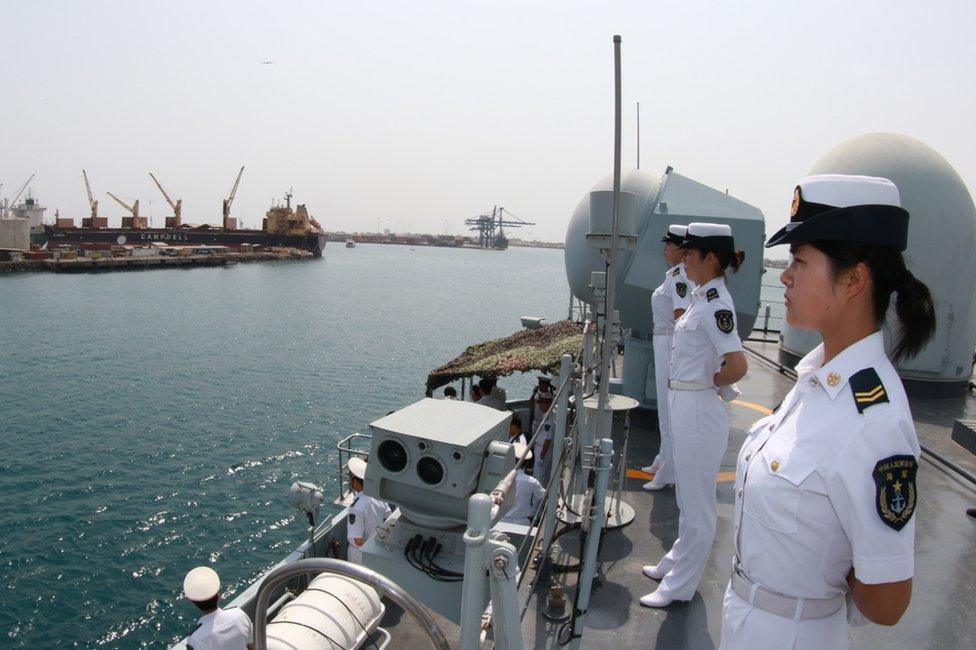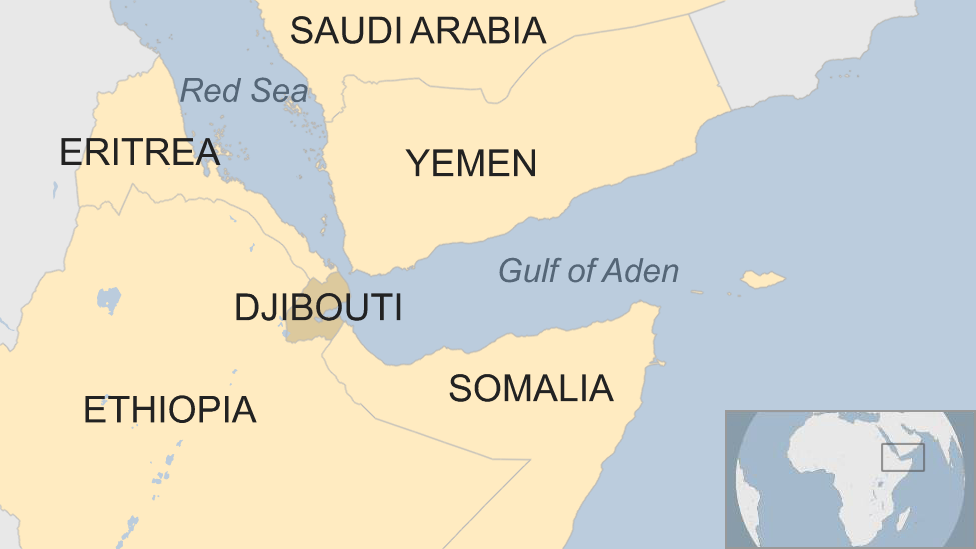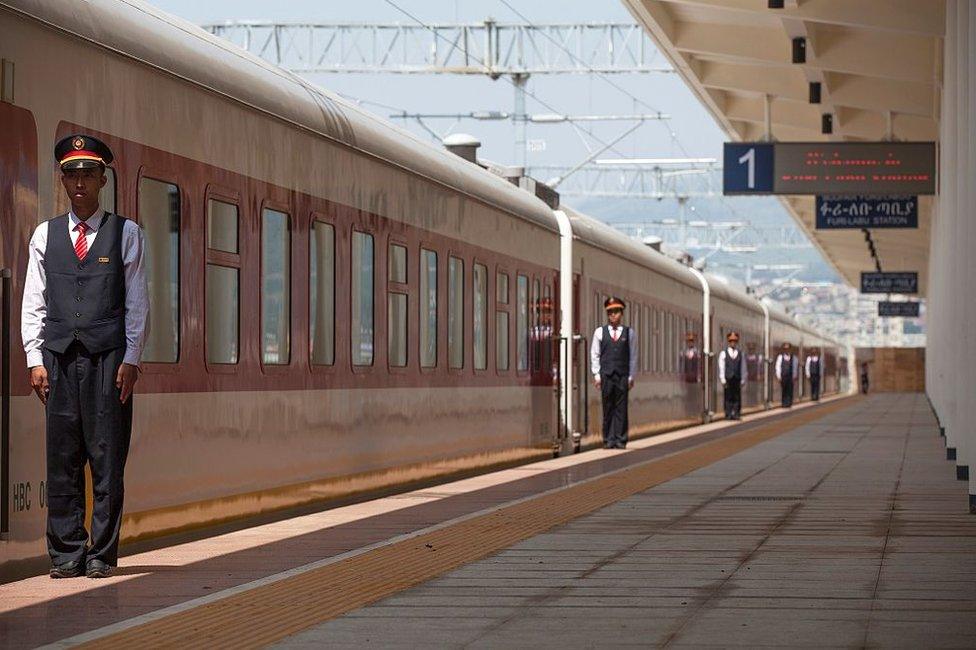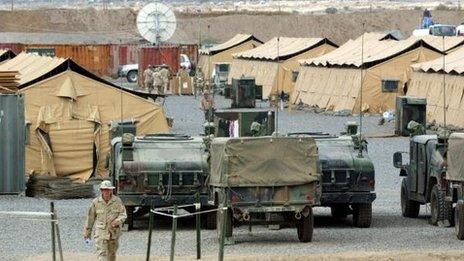Djibouti: Chinese troops depart for first overseas military base
- Published

The Chinese navy has visited Djibouti previously, with a ship docking at the tiny African nation's port in 2015
Ships carrying Chinese troops are heading to Djibouti to set up Beijing's first overseas military base, reports state media.
China says the support base will be used for peacekeeping and humanitarian aid in Africa and West Asia.
It will also be used for military co-operation, naval exercises and rescue missions, Xinhua said.
China has ramped up investment in Africa, as well as rapidly modernised its military in recent years.
The Xinhua report said the ships departed from the port city of Zhanjiang in China's southern Guangdong province on Tuesday.
It did not specify the number of troops or ships that departed for Djibouti, nor when the base would start operations.

The report said the Djibouti base came after "friendly negotiations" between the two countries. Previous reports said construction began last year.
The base is widely seen as a move by China to stake its military presence in the region.
But an editorial, external (in Chinese) on Wednesday in the state-run Global Times said that the "essential purpose of China's development of its military might is to protect 'China's safety', and is not about seeking to control the world".
The newspaper pointed out that the US, Japan and France also have military bases in Djibouti.
Djibouti, a tiny country at the Horn of Africa, is favoured for its location as it sits near a busy shipping route. It is also seen as a stable country in an otherwise volatile region.

China has invested in a railway that connects Djibouti to the Ethiopian capital of Addis Ababa
In 2015, at a major summit with African nations, China pledged to invest $60bn (then £40bn) in Africa's development.
Besides becoming the continent's largest trading partner, it has also poured in funds and manpower for infrastructure projects, external.
Many of them are railways linking up African countries, including one that connects Djibouti with the Ethiopian capital of Addis Ababa, as well as railways in Angola, Nigeria, Tanzania and Zambia.
In return, Africa supplies China with natural resources, minerals and energy.
China also embarked on its first foreign peacekeeping mission in South Sudan in 2015.
- Published2 December 2015

- Published16 June 2015

- Published3 December 2015
